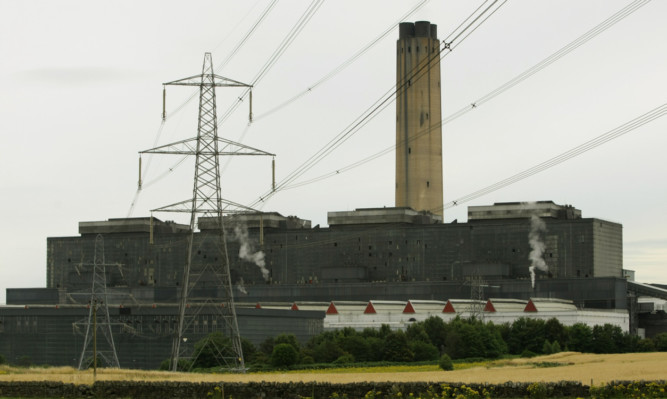we now have a timescale for the closure of one of Scotland’s most valuable energy assets.
Longannet on the Forth has been producing electricity since the early 1970s but operator ScottishPower has now confirmed it will fall silent on March 31 next year.
I’d bet a pretty penny that very few of the workers who fired up Longannet’s coal-fired boilers for the first time in 1972 would have envisaged it still being a vital element in the country’s energy mix almost half a century later.
It is an indictment of the state of energy investment in the UK over the last decades that it is.
But make no mistake. Longannet’s loss will be keenly felt and not just by the 230 employees whose livelihoods directly depend upon it or the hundreds of contract workers and suppliers whose jobs hang on its coat tails.
Longannet is the second largest coal power station in the UK and has the capacity to provide enough juice to power two million households. That cannot be easily replaced.
It’ll take hundreds of millions of investment to replace Longannet’s output, if it ever is.
Even if the process were to begin today then it would be years before a modern facility would get through the planning and design stage, let alone actually being built.
And while I do not think the UK should be relying on outmoded technology, I can see the argument for extending the life of Longannet and other similar plants while new modern facilities are brought on stream.
ScottishPower’s plan for Longannet was to introduce new gas turbines that would keep the lights on and, as importantly, keep workers at their desks.
But that plan is a non-starter thanks to the ludicrous UK transmission charging regime.
In a nutshell, the scheme puts Longannet at a major disadvantage against plants south of the border.
A £40 million disadvantage that is based on Longannet’s distance from major population centres (although Edinburgh isn’t too far away).
When I first became aware of this situation I thought the lunatics must have taken over the asylum.
But the reality is Longannet’s demise is as much to do with political power play between Westminster and Holyrood as it is about the bottom line.
There is simply no excuse for security of the UK’s energy supply and people’s livelihoods being jeopardised by brinkmanship.
